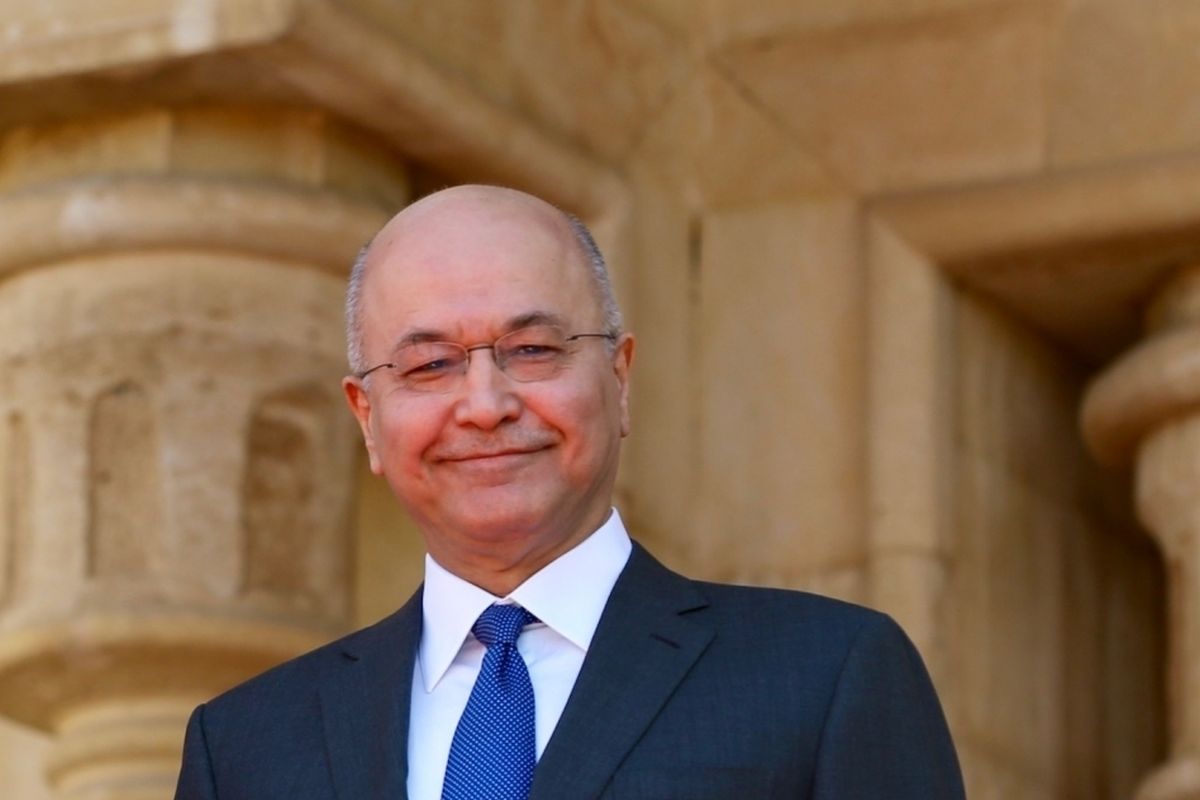The Americans never learn
The Arab Spring, which began in 2011, was dubbed as the starting point in removal of dictators in West Asia and North Africa.
Abel Abdel Mahdi resigned last month as Prime Minister after pressure from protests.

Iraqi President Barham Salih (Photo: IANS)
Iraqi President Barham Salih said on Thursday that he was ready to resign after refusing to endorse a candidate of an Iran-backed Parliamentary bloc as Prime Minister.
Salih said in a letter to the MPs, “Since my position about this current candidacy is considered unconstitutional, I place my readiness to resign from the presidency in front of the members of parliament so they can decide based on their responsibilities as representatives of the people”.
Advertisement
Salih’s decision came as hundreds of demonstrators have taken to the streets in Baghdad and other southern cities to demand the next Prime Minister be independent.
Advertisement
He said he would rather step down than pick a Prime Minister that protesters reject, so Parliament will now have to vote on the matter, Efe news reported.
“Out of my keenness to stop blood and maintain civil peace, and with all due respect to Asaad al-Eidani, I refuse to nominate him,” Salih added.
Salih, a Kurdish politician who assumed office over a year ago, said he had taken the decision to ensure the stability of Iraq which has been the scene of anti-government rallies since October 1.
On Tuesday, thousands of protesters blocked roads and bridges in southern Iraq and condemned Iranian influence and political leaders who have missed another deadline to agree on a new prime minister.
Earlier in the month, 16 protesters were killed and several others injured after unidentified assailants opened fire on anti-government protesters.
In October, thousands of protesters took to the street to protests to demand jobs and better public services in Iraq.
Protesters, most of them young people, waved Iraqi flags and chanted slogans such as “They are all thieves,” apparently referring to the country’s political class.
Abel Abdel Mahdi resigned last month as Prime Minister after pressure from protests.
On December 23, a constitutional deadline to pick a premier-designate expired amid disputes among rival parliamentary blocs.
Earlier, an IHCHR statement said that the demonstrators in Wasit Province burned the Islamic Dawa Party headquarters and stormed the house of the governor in the province, while in the southern province of Dhi Qar, protesters burned the provincial government building.
Since 2003, elections have used a complicated mix of proportional representation and list voting that favours major parties and the heads of lists.
Advertisement